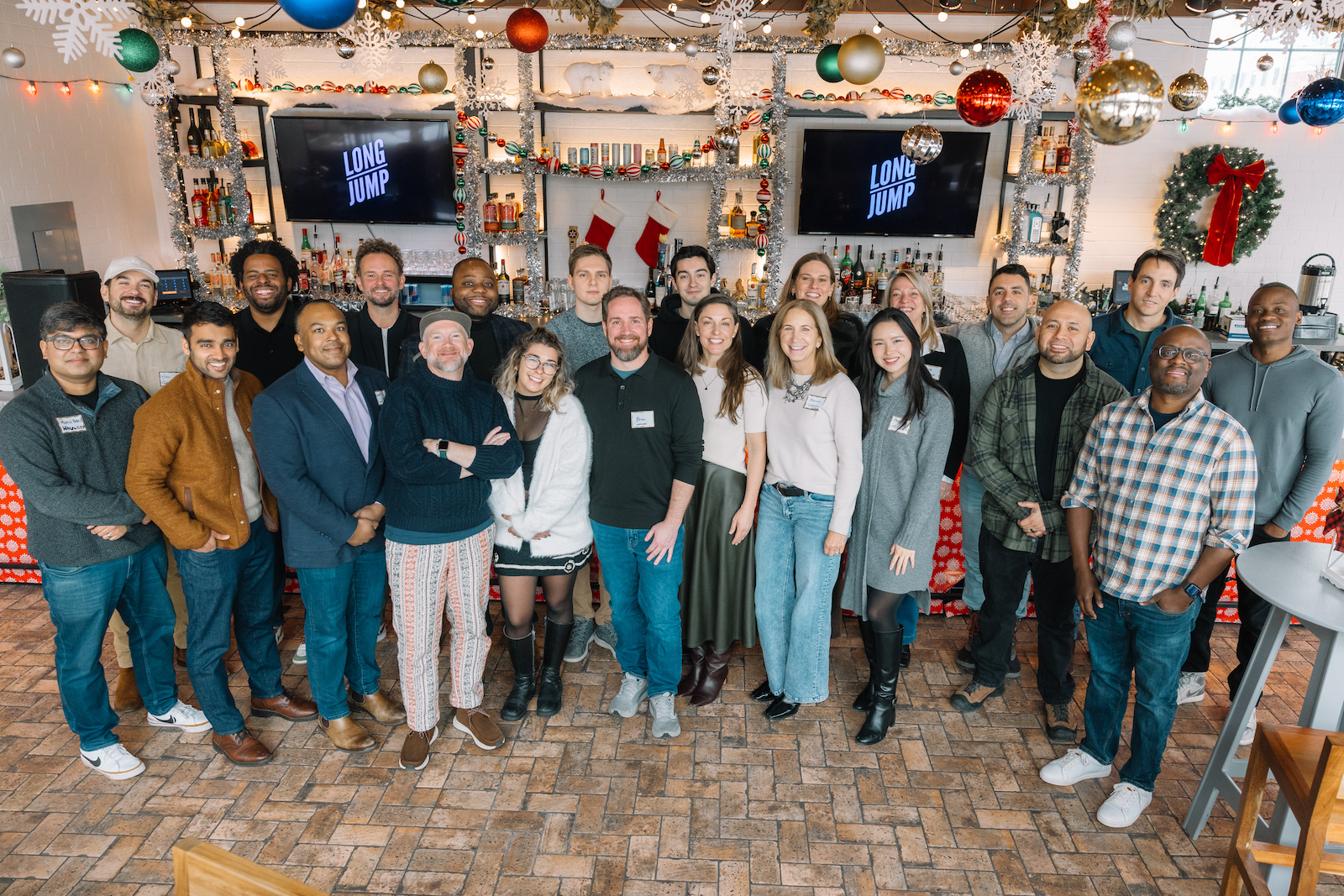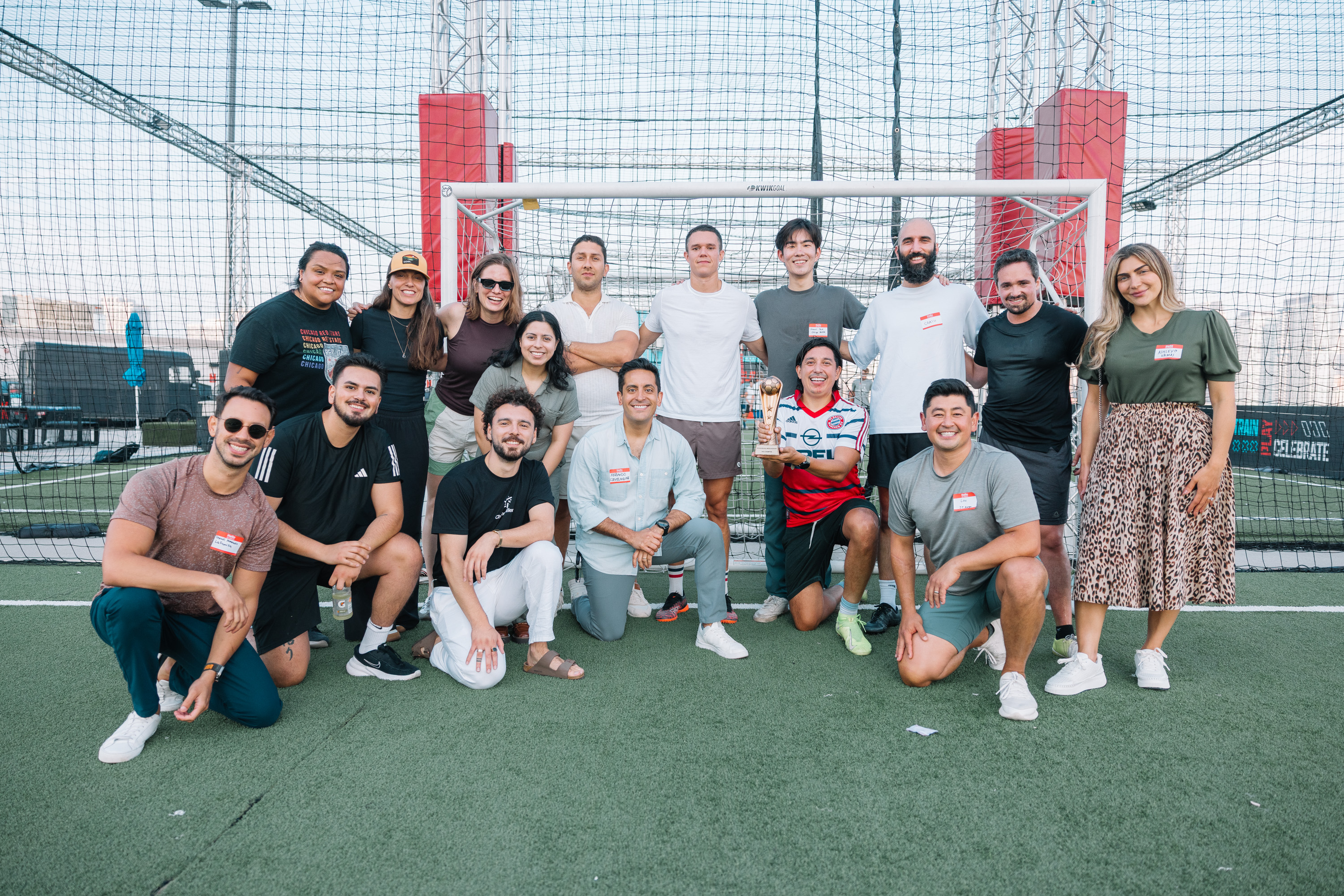Don't Miss a Step. Subscribe to our Newsletter
One of the most crucial partnerships many founders will build is with a co-founder. Successful co-founding relationships can propel a company when each founder brings complementary skills, interests, and natural abilities that fit together like puzzle pieces for their business. However, without respect, clear responsibilities, and communication, the most talented of founding partnerships can fall apart. With some research placing the blame on co-founder conflicts for nearly 65% of high-potential startup failures (Noam Wasserman, The Founder’s Dilemma), co-founders need to be proactive in building healthy relationships.
We talked with Annie Garofalo, CEO of Confidante and a co-founder relationship coach, to create a distilled, DIY version of the conversations she recommends every founding team have upfront. Think about these conversations as a way to identify and map potential relational ‘landmines’ that threaten the survival of your partnership and venture.
In collaboration with the LongJump team, Annie created a distilled, DIY version of her program. Set aside a half-day with your founding team and follow the structure below to get started on building a founding partnership and venture for the long term:
- When & Where: Dedicate a half-day for a structured discussion to understand each other better – choose a place where you both feel comfortable and can be for a few hours without interruption.
- What to Talk About: Keep reading to learn about some critical topics to discuss with your potential co-founder and set aside time to discuss the Key Questions outlined specifically! We’ve also created a free resource for you to use: “Finding the One & Lasting Worksheet for (Potential) Co-Founders”
- How: Before the session, individually complete the above worksheet and prepare to share your thoughts with your partner. During the conversation, apply a speaker-listener approach – a classic relationship therapy technique – where one person speaks to a topic while the other listens without interruption. Afterward, switch roles. Lastly, analyze similarities and differences and discuss potential ways forward.
Start Strong: Reflect on the Past
It’s easy for co-founders to look at their future through rose-colored glasses, but Annie recommends examining your past to understand how you can be your best in the future. It's essential to reflect on your past professional relationships and discuss what worked well and what didn't. Understanding the dynamics of your previous collaborations can help you avoid potential pitfalls in your new venture.
Key questions: What are some projects and team dynamics where you’ve felt you’ve been at your best in the past and why did you feel that way? Conversely, what projects or team dynamics have drained you?
Surface Misperceptions: Do You Know Your Co-Founder’s Preferences?
Understanding each other's working styles and tendencies is crucial for co-founders to foster effective collaboration and minimize misunderstandings. When co-founders are aware of each other's strengths, weaknesses, and work habits, they can allocate tasks more efficiently and leverage each other's skills. Proactively identifying any misperceptions ensures a harmonious partnership by addressing potential conflicts or assumptions before they escalate. This not only enhances communication and decision-making but also creates a stronger, more resilient co-founder relationship.
Key action: Take Annie’s (free) “How Well Do I Know My Co-Founder” Quiz to surface misperceptions within your founding team.
Define Your Why and the Lines You Won’t Cross for Success
People start businesses for a variety of reasons: to make a difference, to generate wealth, to fix a problem out of personal frustration, and more. Understanding what drives you and your co-founder - and where your motivations may be at odds - will help you collaborate on the mission and anticipate bumps in the road.
Key question: What motivates you to start this business? What is motivating your co-founder to start this business?
Beginning with the End in Mind
Success and failure may look different to each co-founder. Beginning with the end in mind is crucial for co-founders because it provides a clear direction and purpose for their entrepreneurial journey and their partnership. First, envision your venture is wildly successful, what factors (partnership, team, strategy, etc.) led to its success? This "post-partum" exercise helps them visualize success, and also identify differences in opinions on what makes a successful startup. Next, envision your venture is closing prematurely, what factors contributed to this failure? This "pre-mortem" exercise is essential to anticipate and mitigate potential pitfalls and challenges of your startup and partnership. By envisioning a premature closure, co-founders can identify critical risks and vulnerabilities in their business plan and operations.
Key question: Imagine it’s 3 years in the future and your venture is wildly succeeding - what factors (partnership, team, strategy, etc.) led to its success? Now, imagine your venture is closing prematurely - what factors led to this failure?
You’re Not Always Going to Agree
Discuss how you'll manage conflicts and create exit clauses in case things don't go as planned. However, even the healthiest partnerships sometimes come to an end. These departures do not have to be dramatic or painful! Have a conversation on potential co-founder departures, considering exit scenarios due to conflict and those driven by life circumstances. Co-founders should agree on a transition plan that allows for a smooth exit without jeopardizing the company's stability, showing understanding and compassion for the departing co-founder's situation. Discussing how and when these conversations should occur helps maintain transparency, trust, and the overall health of the business.
Key questions: Imagine your co-founder is thinking of leaving the company. How and when would you like to have this conversation? How might this differ for exit due to conflict versus life circumstances?
Communication and Feedback Preferences
Understand how one another likes to work and how you prefer to receive feedback. Does your co-founder need some time to cool off before a big debrief? Do they need a lot of positive feedback to feel they are moving in the right direction or does praise make them uncomfortable? Agree on a regular feedback cadence and agenda for both giving and receiving feedback.
Key questions: How and when do you like to receive feedback? Does this change if the feedback is positive or negative?
Money Speaks - Speak About it.
Money matters can be sensitive to discuss. Explore potential compensation and equity options and set key goals and milestones for each partner. This will ensure that both parties feel valued and fairly compensated. These may not be set in stone but thinking about these milestones upfront gives you a starting point for discussions as targets are hit (or not). Of similar importance is understanding the financial threshold for a founder’s personal runway: Do they anticipate expensive life changes (babies, marriage, caretaking for parents)? Will they be graduating soon and need to pay student loans? Are there expectations from their family regarding their careers? It’s better to anticipate these scenarios rather than have to respond to them in critical moments in both your company's and co-founder’s lives.
Key question: What salary are you hoping to make in the next few years and how long do you have to work on this at a reduced income?
The success of your co-founding relationship is pivotal to the future of your business. By asking questions early in your founding process, you can build a strong foundation for your partnership, even if you’ve known this person for years, ultimately increasing your chances of achieving your goals. Remember, a thriving co-founder relationship is not just about creating a successful business; it's also about embarking on a rewarding journey together.
Special thanks to Annie Garofalo and Confidante for their help in compiling this article and resource. Confidante is a co-founder relationship building practice designed to de-risk founding teams and prevent the co-founder conflicts that kill 65% of ventures. Through targeted team sessions covering "The 9 Potential Deal-Breakers for Co-Founders", Confidante's program empowers Pre-Seed to Series A teams to identify and disarm the relational landmines that threaten a startup's survival. The program, founded by Annie Garofalo, draws on her academic background in neuroscience, entrepreneurship, and relationship therapy from Harvard and Stanford, coupled with over a decade of prior experience as a founder, investor, C-suite executive, team coach, and growth strategy consultant. You can read more about Annie’s work with co-founders on her website and take her free “How Well Do You Know Your Co-Founder” Quiz.
Ready to Take The leAp?
Community
Contact
© 2025 | Site Built By PNW




.png)